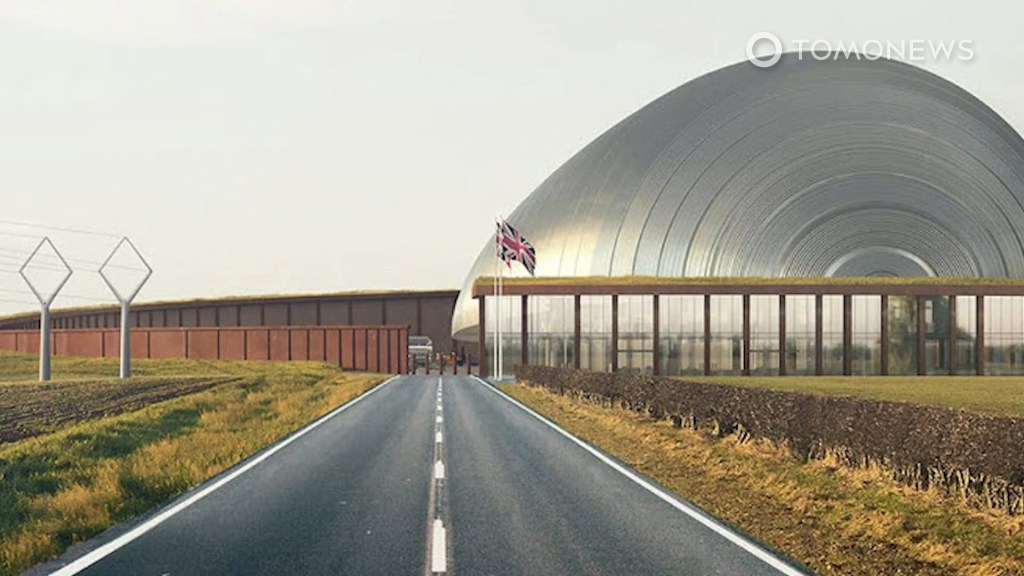Rolls-Royce Selected to Develop UK’s First Small Nuclear Power Stations
Rolls-Royce has committed to spearheading the establishment of thousands of jobs following the government’s decision to initiate the construction of three small nuclear power stations intended to supply energy to approximately three million households.
After enduring several delays, government officials have granted approval for the development of nuclear facilities utilizing small modular reactor (SMR) technology. This innovative approach has been shaped by Rolls-Royce’s extensive experience linked to the Royal Navy’s fleet of nuclear-powered submarines.
In a highly competitive selection process, Rolls-Royce emerged as the preferred contractor, outpacing numerous global contenders.
The announcement had a positive impact on Rolls-Royce’s stock market performance, already buoyed by increased defense spending and leadership reforms by CEO Tufan Erginbilgic, pushing shares to a record high of 907p after a 2.1 percent rise.
Historically recognized for its role in designing and manufacturing aircraft engines for major customers including Airbus and Boeing, Rolls-Royce described the recent development as a significant achievement for both the firm and the nation.
The company highlighted that its SMRs represent the UK’s first homegrown nuclear technology of the 21st century, offering a British solution to the essential task of generating low-carbon electricity. Each reactor unit is projected to provide enough affordable power for over a million homes for at least six decades.
Rolls-Royce secured this opportunity after a two-year competitive process, attributing its success to their technology, which is reportedly ahead of competitors by 18 months.
In addition to this domestic project, Rolls-Royce’s SMR technology has been selected by the Czech Republic, and the company is actively pursuing contracts in other countries, including Sweden, where it has reached the shortlist stage.
Company leadership has consistently emphasized that winning the nuclear energy contract in the UK could unlock significant international opportunities, creating a substantial first-mover advantage.
CEO Erginbilgic remarked, “This is a crucial milestone for our organization, reinforcing confidence in our specialized nuclear capabilities that will be acknowledged globally by governments.” He further noted that the investment focus on SMRs, alongside other strategic decisions such as shifting away from electric aircraft technology, demonstrates the effectiveness of their transformation strategy.
According to projections from the International Energy Agency, global electricity production is set to double by 2050, with the nuclear energy market potentially hitting $500 billion.
The government refers to this initiative as the dawn of a “new golden age for nuclear power in the UK,” coinciding with the establishment of another major power station at Sizewell. The overall SMR program will receive government funding exceeding £2.5 billion.
A newly formed government entity, Great British Energy – Nuclear, will oversee the project, aiming to designate sites despite expected controversies, and plans to connect these projects to the national electricity grid by the mid-2030s.
The Department for Energy Security and Net Zero has stated that SMRs can be constructed more quickly and efficiently than traditional nuclear plants, with projected cost reductions as more units are developed.
This competitive outcome marks a pivotal step towards lowering expenses and facilitating private investment, allowing the UK to achieve its long-term goal of establishing one of Europe’s first fleets of small modular reactors.
Energy Secretary Ed Miliband emphasized that this initiative marks an end to the prolonged period of nuclear hesitance, heralding a significant construction era in nuclear energy.
Simon Bowen, chair of Great British Energy – Nuclear, characterized the announcement as a transformative moment for the UK’s energy landscape and industrial future, highlighting the potential to create numerous skilled jobs while laying a foundation for sustained economic development.




Post Comment